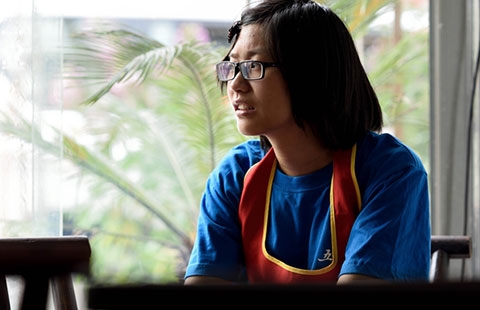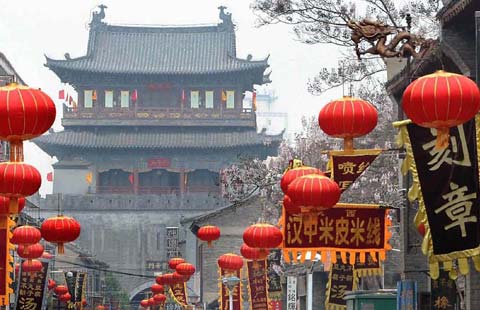World 'watching' Japan's next move
Updated: 2015-08-07 09:13
By ZHANG YUNBI and CHENMENGWEI in Beijing and CHEN WEIHUA in Washington(China Daily USA)
|
||||||||
Abe's record of whitewashing Japan's role in the war, such as questioning whether it is aggression on the part of Japan and whether comfort women, or women forced into sexual slaves, were coerced by the Japanese army and government, have angered not only Chinese but Koreans.
Leading US newspapers, such as the Washington Post and New York Times, have run editorials over the years blasting Abe's revisionist views on history. Japanese American Congressman Mike Honda from California has repeatedly urged Abe and the Japanese government to correctly face-up to the comfort women issue.
On Thursday, South Korea's Foreign Ministry expressed regret over an advisory report relating to Abe's upcoming statement, saying that the contents are "not at all" helpful for improving Seoul-Tokyo relations, South Korea's Yonhap News Agency reported on Thursday.
Earlier on Thursday, Abe was handed a report by a group of experts from Japan of what, in their opinion, should be included in his statement to be released next week. The report cited acknowledgment of Japan's wartime aggressions, but at the same time it reportedly did not contain any calls for an apology, and instead refers to the South Korean government as having been moving around the "goal post" for the two countries' history-related issues.
On Abe's statement, likely to be made on August 14, the attention will be on whether he will truly uphold the view of history by his predecessors, in particular Prime Minister Tomiichi Murayama. Words like "heartfelt apology" and "colonial rule and aggression" were both in the 1995 Murayama Statement and 2005 statement by Prime Minister Junichiro Koizumi. Abe's words "deep remorse" were seen as not going far enough.
The US government has hoped that its two allies, South Korea and Japan, will be able to put bitter history issues behind to better support an envisioned US-Japan-South Korea trilateral alliance, but the US has not pushed hard enough on Abe, a stalwart supporter of the Japan-US alliance.
Asked about the advisory panel report to Abe on Thursday, US State Department Deputy Spokesman Mark Toner only said that "we welcome Prime Minister Abe's positive comments this past year on history issues — as well as Japan's postwar contributions to peace. We took note of his remarks in Washington about upholding the views expressed by previous prime ministers in regard to the past."
"And we believe, finally, that strong, constructive relations between countries in the region promote peace and stability and are in their interests as well as the interests of the United States," he told a daily briefing.
But he dodged the question on whether Abe should go further in the upcoming statement.
While many had thought Abe would visit Beijing in September to hold another summit with Chinese President Xi Jinping, Foreign Minister Wang Yi said he had "not heard" of such as visit in September, words that have been interpreted as Beijing's dissatisfaction with Abe's recent actions.
- Chinese FM rejects Philippine, Japanese, US claims on South China Sea issue
- 'Major breakthrough' may help solve riddle
- Hiroshima marks 70th anniversary of bombing
- World 'watching' Japan's next move
- Migrant boat capsizes in Mediterranean, at least 25 dead
- Japanese gov't owes its people solid promise not to rearm

 30 historic and cultural neighborhoods to visit in China
30 historic and cultural neighborhoods to visit in China
 Beijing Museum of Natural History unveils 'Night at the Museum'
Beijing Museum of Natural History unveils 'Night at the Museum'
 Sun Yang wins third consecutive 800m free gold at worlds
Sun Yang wins third consecutive 800m free gold at worlds
 Aerial escape
Aerial escape
 Freshmen of top universities from poorer families work part time to reduce family burden
Freshmen of top universities from poorer families work part time to reduce family burden
 17 armed forces take part in Russia military contest
17 armed forces take part in Russia military contest
 A glimpse of traditional Chinese business blocks
A glimpse of traditional Chinese business blocks
 Top 5 most popular drones in China
Top 5 most popular drones in China
Most Viewed
Editor's Picks

|

|

|

|

|

|
Today's Top News
China willing to work with US to contribute to world peace, stability
China asks further investigation on MH370
Police fatally shoot ax-wielding man at Nashville movie theater
Study-abroad tours in US booming
Malaysia confirms plane debris is from Flight MH370
IMF to study yuan inclusion
LA clinic seeks fertility-market access
China and US discuss ways to fight terror
US Weekly

|

|






